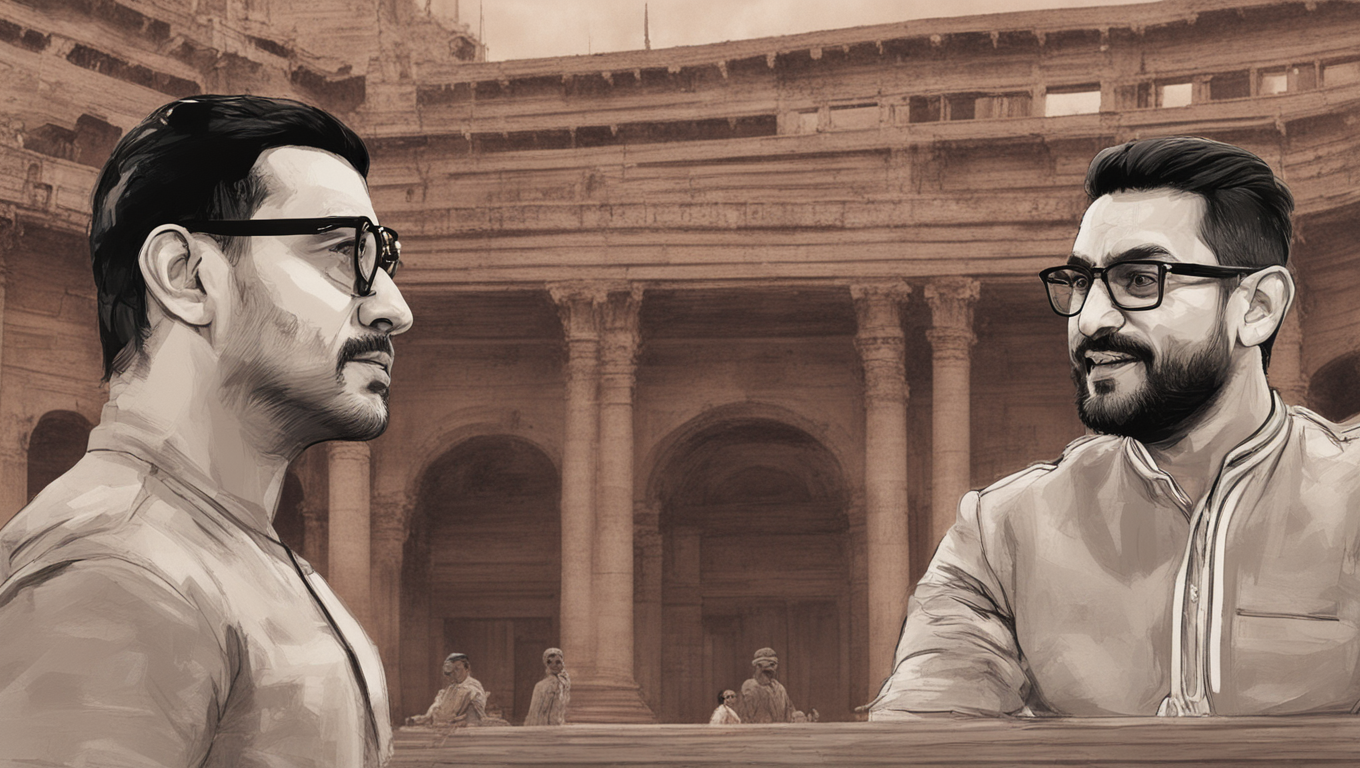Deepfake Videos: Bollywood Stars Criticize Indian PM in Viral Election Campaign
In a surprising turn of events, two Bollywood actors, Aamir Khan and Ranveer Singh, have found themselves at the center of a deepfake scandal during India’s ongoing general election. In these AI-generated videos, Khan and Singh are seen criticizing Prime Minister Narendra Modi and urging people to vote for the opposition Congress party.
The 30-second video featuring Aamir Khan and the 41-second clip of Ranveer Singh allege that PM Modi has failed to deliver on campaign promises and address critical economic issues during his two terms as prime minister. The videos, which showcase the Congress election symbol and slogan, “Vote for Justice, Vote for Congress,” have garnered over half a million views on social media since last week.
These deepfake videos highlight the potential impact of AI-generated content on the mammoth Indian election, which began on Friday and will continue until June. The use of AI and deepfakes in elections is not unique to India, as other countries like the U.S., Pakistan, and Indonesia have also employed such technology in their political campaigns.
Traditionally, Indian campaigning has relied heavily on door-to-door outreach and public rallies. However, since 2019, WhatsApp and Facebook have played a pivotal role in political campaigns. This year’s general election marks the first time AI is being utilized in such a significant capacity.
A Congress spokesperson, Sujata Paul, shared Ranveer Singh’s video on her social media platform, resulting in numerous shares, likes, and views. Although the video was marked as “manipulated media” by the platform, Paul chose not to delete it, citing her initial belief that the person in the video was a Singh look-alike. She also commended the video for its creativity.
Both actors have made it clear that the videos are fake. Facebook, YouTube, and several fact-checking websites have also confirmed that the videos have been manipulated. However, it remains unclear who created these deepfake videos.
As the videos gained traction, nearly two police investigations were launched. A case was filed by Aamir Khan in Mumbai against the creators of the fake video, accusing them of impersonation and cheating. Mumbai police have reached out to Facebook and YouTube to remove the videos, with some already being blocked. The investigation is ongoing, and the police have stated that technical investigations take time.
Beyond these deepfake videos, AI has found other applications in this year’s election. In southern India, Congress leader Vijay Vasanth’s team created a 2-minute audio-video clip using AI that features his deceased father seeking votes for him. The video has been shared on social media platforms, showcasing the innovative ways in which AI can be utilized in political campaigns.
Furthermore, the Communist Party of India-Marxist (CPM) has released videos on YouTube featuring an AI-generated news anchor named Samata. Dressed in a traditional saree and mimicking regular news channels, Samata criticizes the ruling party in West Bengal state. These videos have been viewed thousands of times, sparking discussions among citizens.
As AI continues to evolve, it becomes crucial to address the challenges and implications of deepfake technology in elections. The spread of misinformation and the ability to manipulate videos are significant concerns that need to be addressed by both policymakers and tech companies.
Despite the controversy surrounding deepfakes, one thing remains clear: the influence of AI in elections is a reality we cannot ignore. As AI technology advances, its potential to shape political campaigns is only expected to grow. It is essential for governments and society as a whole to stay vigilant and develop strategies to combat misinformation and ensure the integrity of democratic processes.





Use the share button below if you liked it.